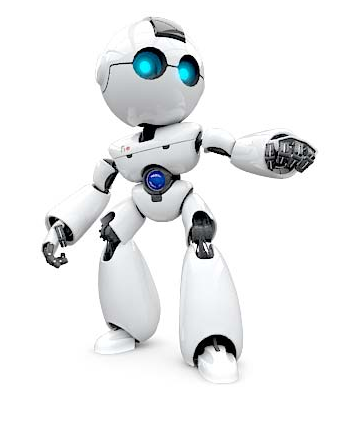Difference between revisions of "Robolution"
| Line 36: | Line 36: | ||
PC with Sound Card and software, MiniMexle Boards, cables, power supplies, 1 oscilloscope, 1 signal generator, | PC with Sound Card and software, MiniMexle Boards, cables, power supplies, 1 oscilloscope, 1 signal generator, | ||
| − | + | Group Size: limited to max. 10 people working in groups of 2 | |
ToDo: hotel reservations from 8/9.7 up to 10/11.7 (3 nights), + food for 2 people | ToDo: hotel reservations from 8/9.7 up to 10/11.7 (3 nights), + food for 2 people | ||
Revision as of 14:38, 30 April 2008
Summer School of Robotics
28 June to 12 July 2008
Organized in cooperation with the BEST - see
the official website of the BEST summer course
The activities labeled ![]() are recommended for the participants
of the BEST summer course. All the activities except the laboratory workshops are open
to the public. Robotika.SK organizes at the same time Robotic holidays. You can visit
any lectures and tutorials listed here PLUS You can participate on the projects which
will be solved during these days.
are recommended for the participants
of the BEST summer course. All the activities except the laboratory workshops are open
to the public. Robotika.SK organizes at the same time Robotic holidays. You can visit
any lectures and tutorials listed here PLUS You can participate on the projects which
will be solved during these days.
Following topics/presentations are confirmed for now:
-
 History of the word Robot and the cultural context of robotics.
History of the word Robot and the cultural context of robotics.
prof. Kelemen (Silesian University in Opava, CZ)
- Basics of DSP on AVR processors (hands-on tutorial).
prof. Dipl. Phys. Gerhard Gruhler, Dipl. Ing. Peter Haeuptle (Hochschule Heilbronn, DE)
Date: 9. - 10. 7. 2008
Prerequisities: AVR programming in C language, AVR Studio, basic understanding of the A/D and D/A conversion process,
Material + Software: AVR studio + avr-gcc, Audiotester or simillar Source + Scope on sound card http://audiotester.de/,
Matlab + Simulink?/ Octave or SystemView used in HHN
PC with Sound Card and software, MiniMexle Boards, cables, power supplies, 1 oscilloscope, 1 signal generator,
Group Size: limited to max. 10 people working in groups of 2
ToDo: hotel reservations from 8/9.7 up to 10/11.7 (3 nights), + food for 2 people Account Wiki
-
 History of the robotics.
History of the robotics.
assoc. prof. Hubinsky (FEI STU, SK)
Illustrated lecture about the history of the robotics - from ancient inventions to the latest research projects. Information about technical and also non-technical aspects of the robotics evolution.
-
 Kinematics of mobile robots.
Kinematics of mobile robots.
assoc. prof. Hubinsky (FEI STU, SK)
Basic types of the mobile robot kinematics - differential drive, tricycle, Ackermann steering, omnidirectional wheels, synchronous drives - basic structures, coordinate transformations, technical solutions.
- Lecture "Subsumption: Brooks' approach to robotics"
Dr. Lucny (MicroStep-MIS, SK)
We introduce subsumption as simplified method how to mimics biological evolution for purposes of robot construction. Features of biological creatures as their situatedness in particular environment and thinkering (bricolage) during their evolution are used as important insiration.
- Tutorial "How to follow a ping-pong ball"
Dr. Lucny (MicroStep-MIS, SK)
We introduce step-by-step necessary methods of image processing and behavior control for development of a simple robot which follow a ping-pong ball. In this way we demonstrate several important principles on a simple example.
- Lecture Bayesian Robot Programming and Probabilistic Robotics.
Mgr. Pavel Petrovič, PhD. (FMFI UK, SK)
The information about the robot environment acquired from robot sensors is uncertain, ambiguous and noisy. To cope with this kind of information, probabilistic modeling of the world is appropriate. The parameters of the probabilistic distributions can be obtained by learning from experimental data. This tutorial will introduce basic concepts used in probabilistic robotics and demonstrate them on practical examples.
- Lecture Selected topics from Evolutionary Algorithms I, II
Mgr. Pavel Petrovič, PhD. (FMFI UK, SK)
Evolutionary Algorithms are stochastic search and optimisation algorithms. Various flavours of the algorithms are known. We will shortly review the basic methods and discuss the more advanced approaches including probabilistic representations of populations, multi-objective evolutionary optimisation, representation issues, and evolution of recurrent neural networks.
- Workshop Low-level programming of NXT robots.
Mgr. Pavel Petrovič, PhD. (FMFI UK, SK)
The popular robotics construction sets - LEGO Mindstorms NXT can be programmed using the standard programming environment RoboLab, and many other 3rd party programming environments, such as NBC, NXC, RobotC, Lejos, and other. In this workshop, we will learn how to program the robots directly in C, i.e. how to write a firmware for the NXT brick.
Archive
Contact
richard.balogh [at] robotika.sk

